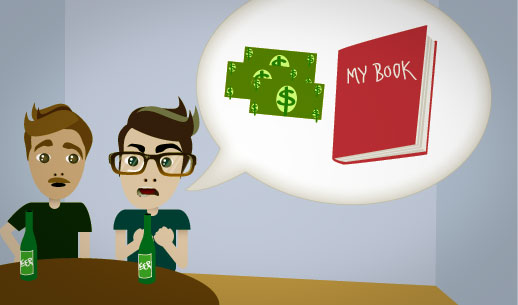“In retrospect, I probably should have known it was a scam.”
You wrote a book, and sent it out to lots of different publishers. One publisher agreed to print it, but said that you had to pay $4,000 to cover publishing fees. You were excited to have your book published so you gave them the money, but now you've only sold a few copies of your book. You regret paying the company, so you say this to your friend.
In retrospect, I probably should have known it was a scam.
Want Video and Sound? Follow us on YouTube

In retrospect, (sentence)
Use "in retrospect" at the beginning of your sentence to tell what you think of something after it happened. In the example above, you now think it's obvious that the publishing company wasn't honest, although at the time you were excited about it.
People use words like these along with "In retrospect":
-
probably (like in the example above)
In retrospect, I probably should have worked harder in school.
-
seems
In retrospect, it seems like it all happened so quickly.
-
realize
In retrospect, I realize that my parents were just trying to do what was best for me.
-
wish
In retrospect, I wish I had kept working there for a few more years.
You can also use "in retrospect" at the end of a sentence:
I probably should have known it was a scam, in retrospect.
I should have known (something)
Use "I should have known ___" to talk about something that you made a mistake about, but now you think that the correct answer is obvious.
In the example above, "I should have known it was a scam" means that you now know that the company is a scam, but you're frustrated because you should have figured that out before paying them to publish your book.
(something) is a scam
A "scam" is a trick that someone plays on you in order to take your money.
Some companies or products are "scams". This means that they take customers' money by lying to them or trying to trick them.
